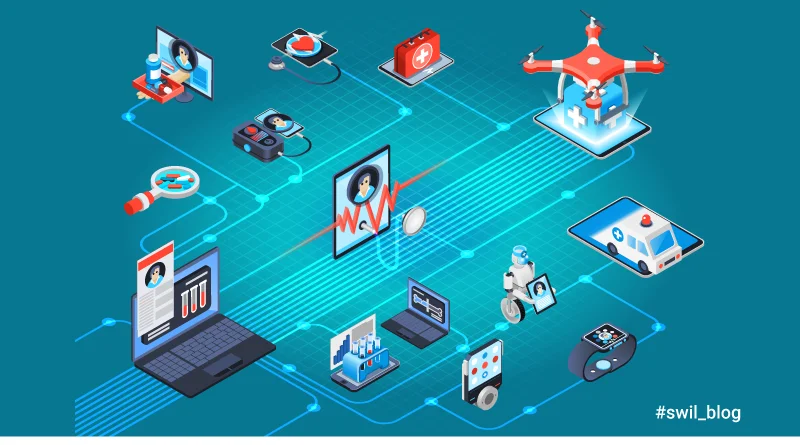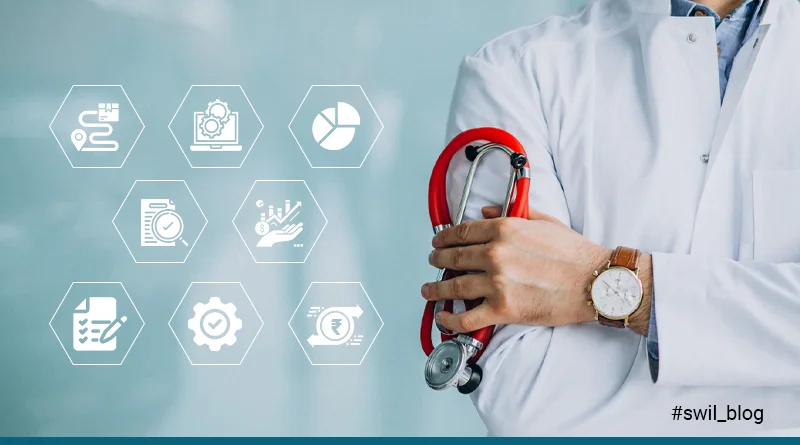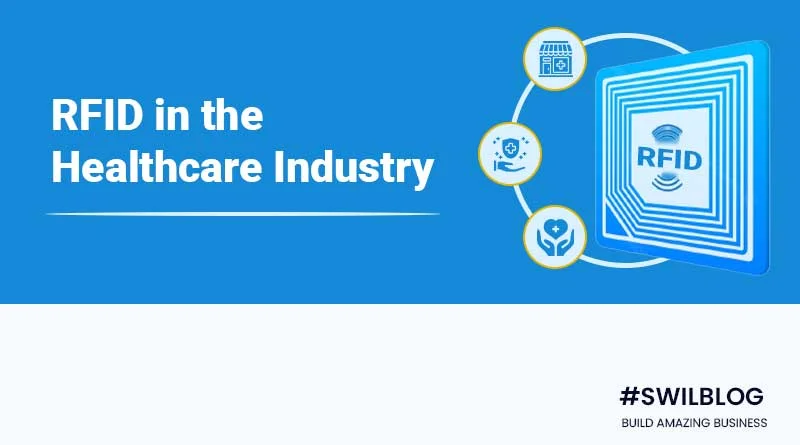RFID adoption is becoming more critical in the healthcare business. Manufacturing and logistics, as well as healthcare and construction, all need this extremely efficient technology to flourish. When it comes to the healthcare industry, Radio Frequency Identification Technology may face a variety of real-world issues, guaranteeing optimal patient care.
This low-cost solution helps with hospital administration, equipment handling, supply chain management, prompt admission, and providing the most satisfactory services available to safeguard patients’ health and safety. The healthcare business’s primary issues are well-regulated workflow, patient safety, and cost-effective administration. RFID technology, which was just introduced, tackles all of these difficulties and offers practical solutions to decrease the number of mistakes.
RFID Technology’s Goals in the Healthcare Industry

In the healthcare business, RFID technology is a one-stop-shop for achieving the following goals:
Identification of Patents
Specific scenarios emerge due to human mistakes, such as erroneous patient registration at the hospital. This inaccuracy may be eliminated by using an RFID tracking device for correct verification.
When patients are admitted to the hospital, an RFID bracelet is given to them to acquire a complete medical history and patient information. This information was scanned into an electronic file, which medical practitioners may view at any time.
Hospital Equipment Tracking
The significance of vehicles, machinery, and equipment cannot be overstated in any hospital. Hospital administrators may employ RFID systems to keep track of such items and ensure asset upkeep. Because these assets are engaged in critical care, they are constantly in an easy-to-use model. RFID tags play an important role here! These tags effectively track this equipment and facilitate efficient transportation inside and outside of hospitals.
Keeping Patient History Records
During the COVID-19 phase, the RFID tracking technology assists millions of patients in receiving remote treatment regardless of location. To enable medical practitioners to follow the patient’s health, they must wear an RFID band on their wrist. The wristband contains the patient’s information, such as name, allergies, medical record, and other critical details.
Doctors may gain aid in acquiring crucial information during surgery since these bands maintain the patients’ data. Furthermore, these tags are helpful. As a result, if a patient has memory issues, these wristbands will show all of the patient’s information.
Tracking of pharmaceutical products
The RFID software effectively handles medicinal items. The monitoring system keeps you up to speed on your hospital’s current stock levels and drug expiration dates. Because they are the most consumable items in a hospital, every hospital must have all medications in stock to prevent operational failure.
The system may also track vaccines, syringes, masks, gloves, and other essential supplies. Hospitals must purchase this costly surgical equipment and pharmaceutical equipment. As a result, it will be beneficial to continue following these products.
The medical business is benefiting from the advancement of RFID healthcare solutions. However, adoption has not been as widespread as projected. The healthcare industry will embrace this valuable technology in the next few years to help it progress.
Benefits in Healthcare Industry

Asset tracking and inventory management
Most organizations struggle to keep track of assets and materials, whether components on a manufacturing line, completed goods being sent, industrial containers that need to be returned, or tools, laptops, and other high-value equipment that often go missing. RFID systems provide a quick and dependable tracking method without having to count each item.
RFID applications allow you to instantly see how many of each sort of item you have and where they are in the process. Items may be tracked from the moment they are received in stores until the time they are sent to production and utilized in a final product. This simplifies inventory management, stock checks and audits, and “shrinkage” control. RFID may also assist in locating goods that are present but have been lost.
Automation allows you to save time and money.
RFID solutions may monitor the movement of items and transfer the data to an ERP or financial management system. As a result, they may eliminate the requirement for manual form filling and obsolete spreadsheets. Fixed readers at crucial places may save even more time – and in a production line, for example, they can eliminate the need for human intervention.
Improving the accuracy and availability of data
Since data is captured and uploaded electronically, RFID eliminates transcription mistakes, data duplication, and “missing items” when used to gather data on a large number of things at the same time. The use of cloud-based solutions enables everyone in the organization to access the most up-to-date information on the location or status of assets. Customers might also be given access to data.
Quality and traceability have been improved.
RFID systems can also assist in ensuring that items have gone through all necessary checks and processes, such as ensuring that a boiler has been correctly assembled, inspected, and approved before being delivered to the customer, thereby improving quality and reducing the number of goods returned. RFID tagging may ensure traceability by monitoring an item from its origin to its destination.
Increased earnings
Organizations that use RFID to improve inventory management may offer a service that fosters competitive distinction and encourages enhanced customer satisfaction, as well as prospects for more significant sales and better profitability.
More detailed management details
RFID enables real-time data collection at various phases of an asset’s or product’s lifetime, providing increased management information for planning and operational needs. These insights may be used by businesses to generate additional efficiency gains.
Shorter processes
RFID technology may be used with other industrial or supply chain technologies, such as automated pallet handling and stock selection systems, to shorten the time between order and delivery.
Short payback period
RFID is a highly cost-effective technology, and the cost savings and increased revenues may soon pay for the original investment.








